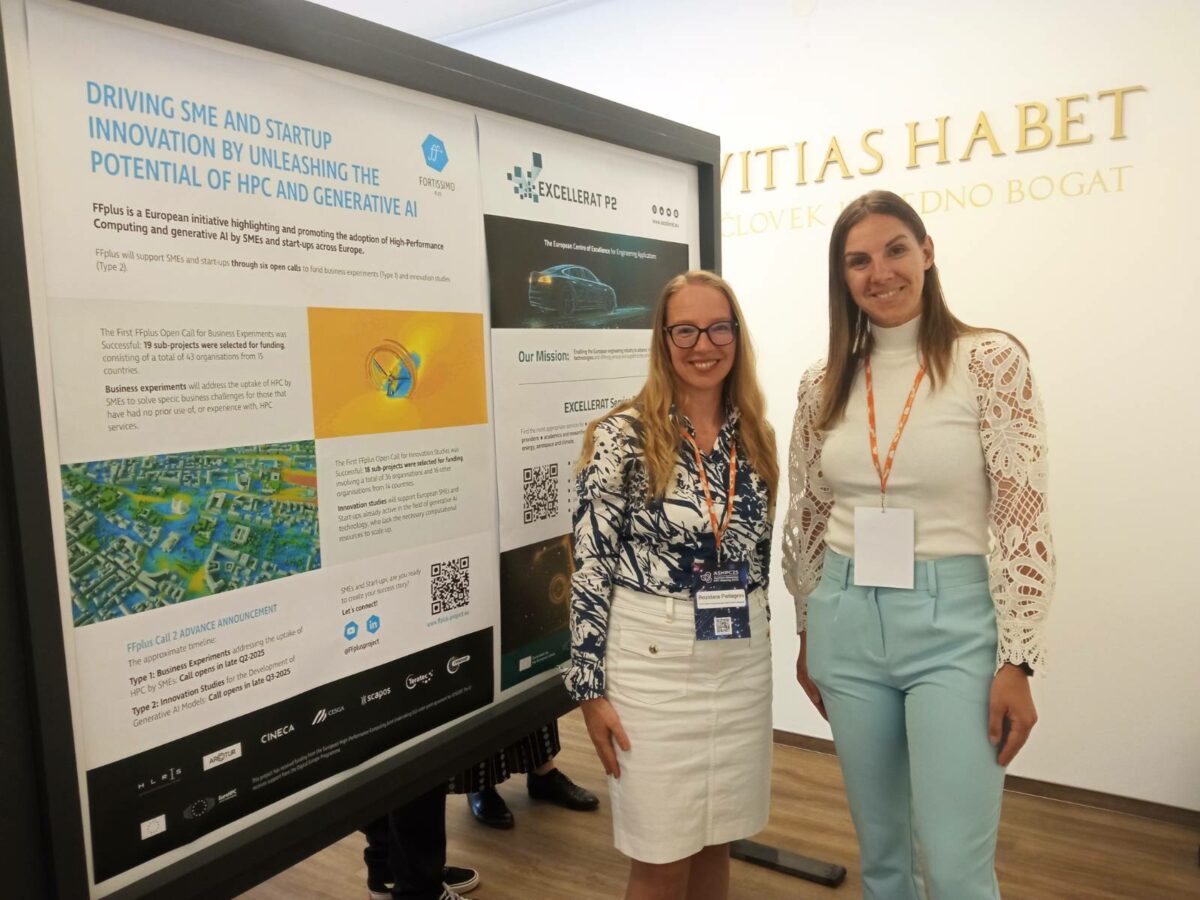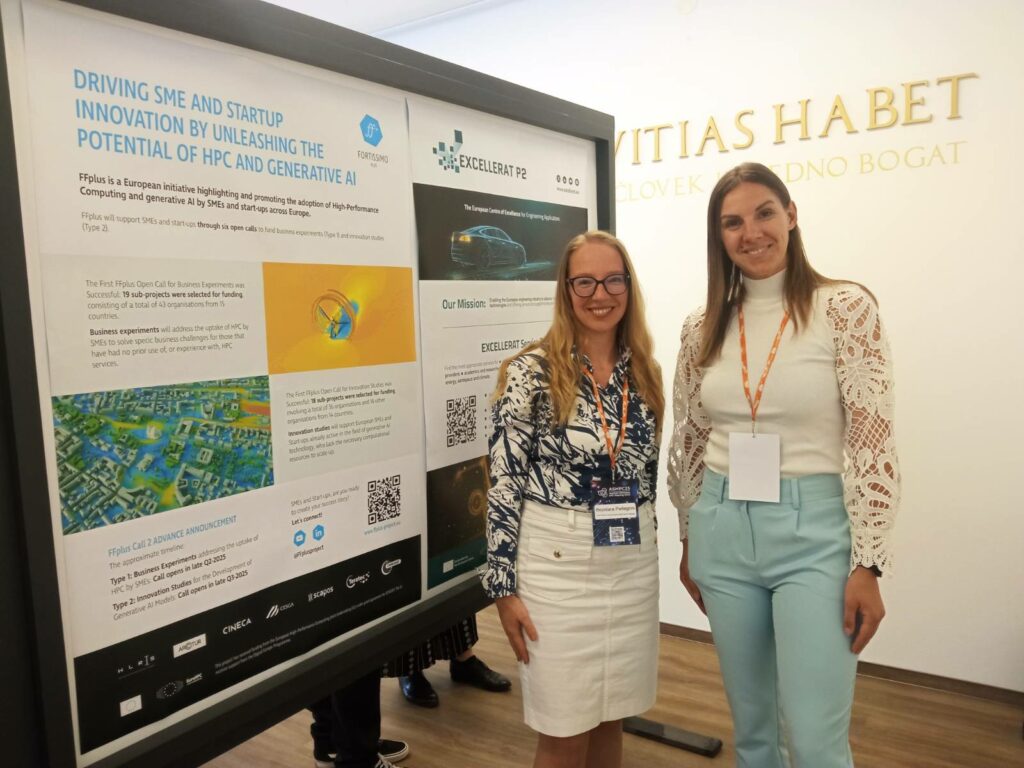FF+ and the NCC for HPC: Supporting Innovation through High-Performance Computing
During the international conference Austrian-Slovenian HPC Meeting 2025 (ASHPC25), held from May 19 to 22, 2025, in Rimske Terme, Slovenia, representatives of the Slovak National Competence Centre for High-Performance Computing (NCC for HPC) met with Tina Črnigoj, dissemination and promotion coordinator of the Future Factories Plus (FF+) project. The meeting provided a valuable opportunity for expert discussion and the exchange of perspectives on connecting national digitalisation initiatives with strategic European projects. It highlighted promising synergies between the FF+ project and the mission of the NCC for HPC in Slovakia, particularly in the areas of advanced computational performance, innovation potential, and support for small and medium-sized enterprises (SMEs) facing increasing challenges in digital transformation and competitiveness.
FF+ is an ambitious European project aimed at accelerating digital transformation and promoting sustainability in manufacturing. The project’s goal is to connect manufacturing companies with digital innovation hubs and centres of excellence across Europe. At the same time, FF+ provides a framework for collaboration at the European level, which is essential for the effective sharing of knowledge, technologies, and best practices among EU member states.
The National Competence Centre for HPC in Slovakia has long focused on supporting industrial digitalisation through high-performance computing (HPC), artificial intelligence (AI), and data analytics. Its goal is to enable Slovak companies – including SMEs – to harness the potential of modern technologies for innovation, increased efficiency, and reduced time-to-market for research and development. In this field, the NCC for HPC has experience in implementing pilot projects, providing technological consulting, and organising tailor-made training programs.
The meeting with the FF+ team at the ASHPC25 conference represented an important step towards building bridges between national and European initiatives. Both sides agreed on the need for further coordination and the development of collaboration. Specific opportunities for synergy were identified, such as involving industrial partners in testing and applying HPC solutions, as well as exchanging data models and algorithms between research and manufacturing entities.


